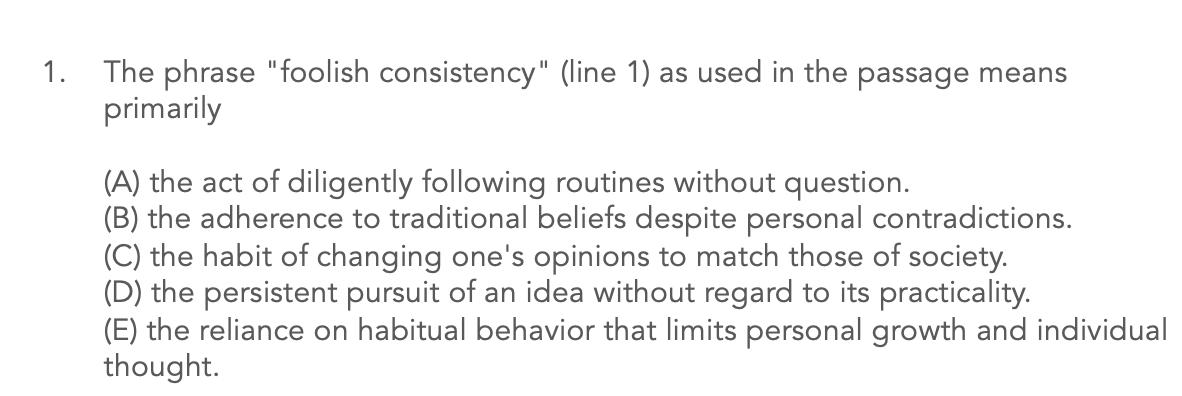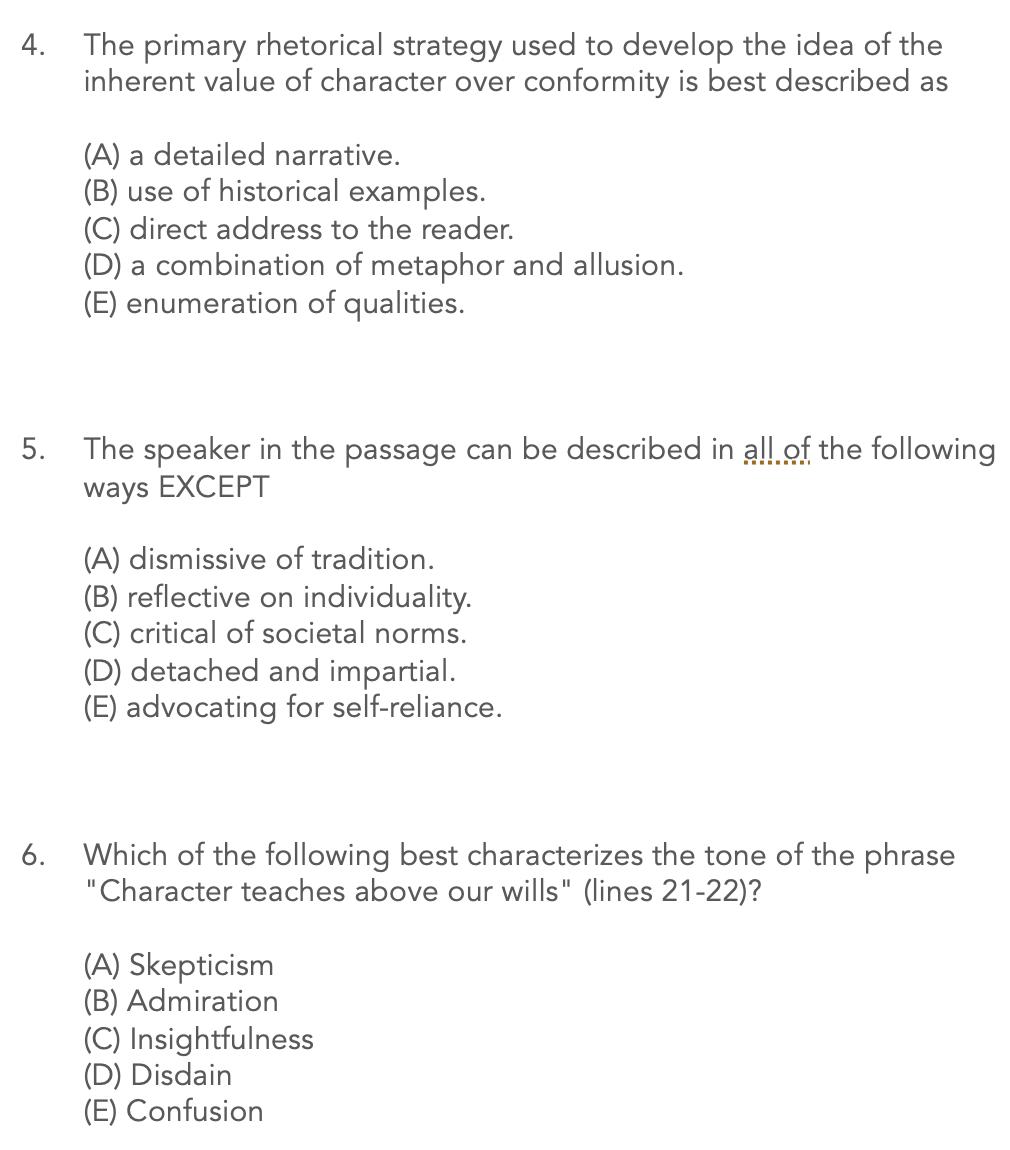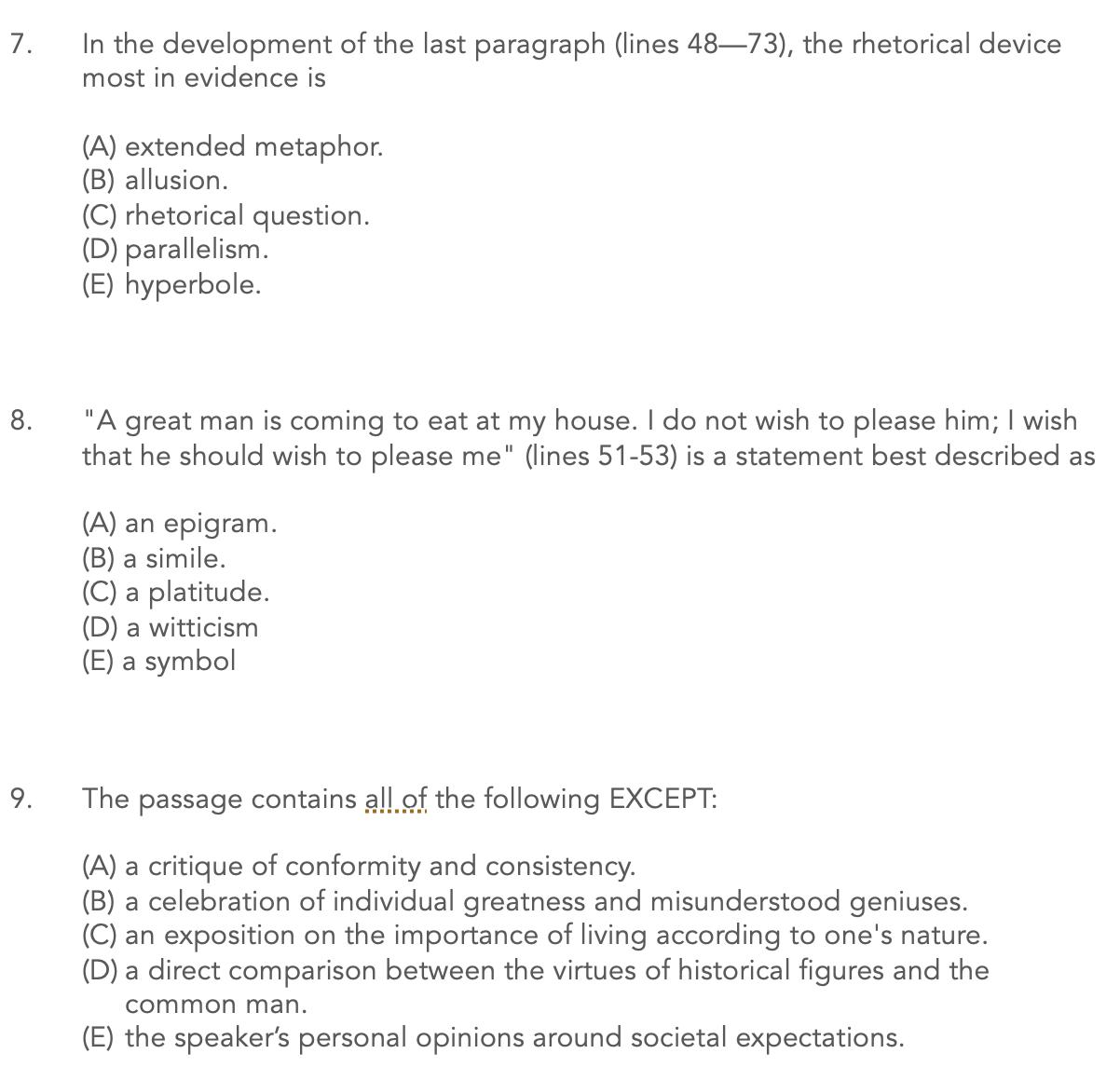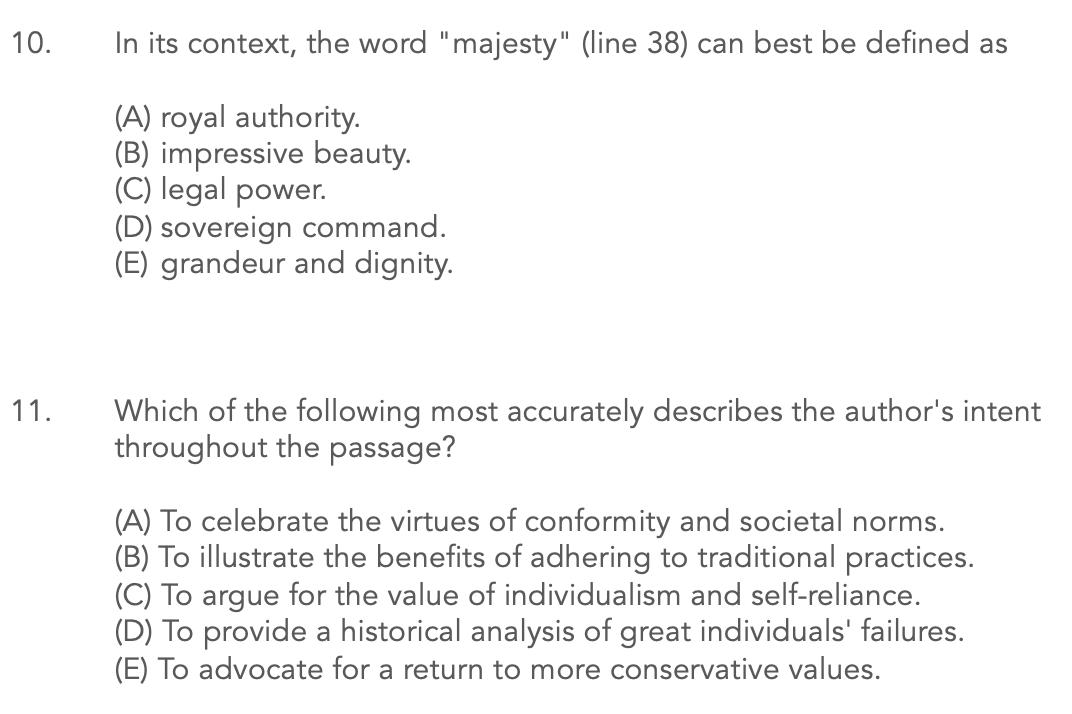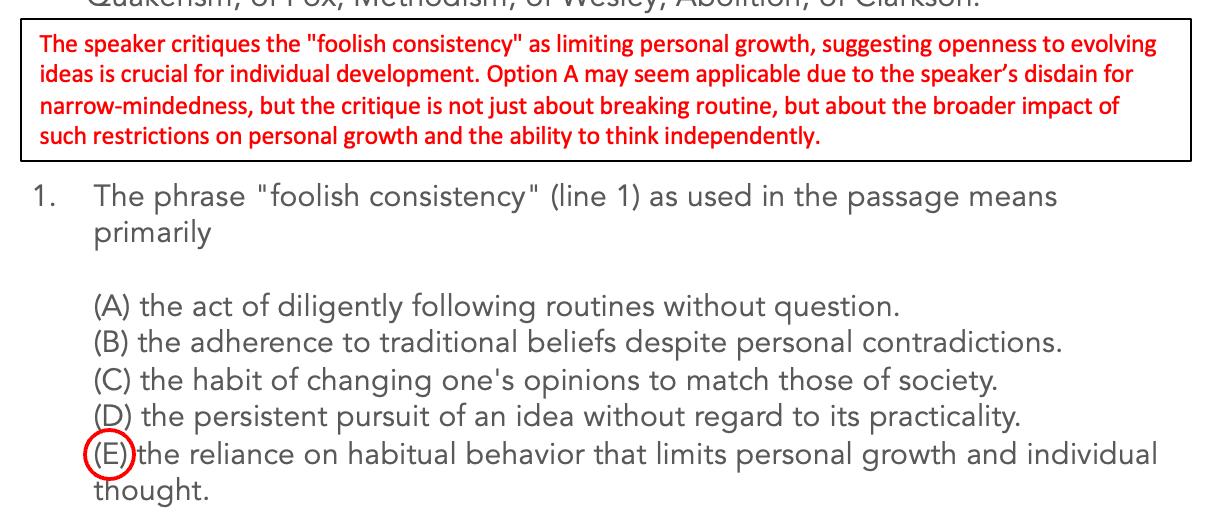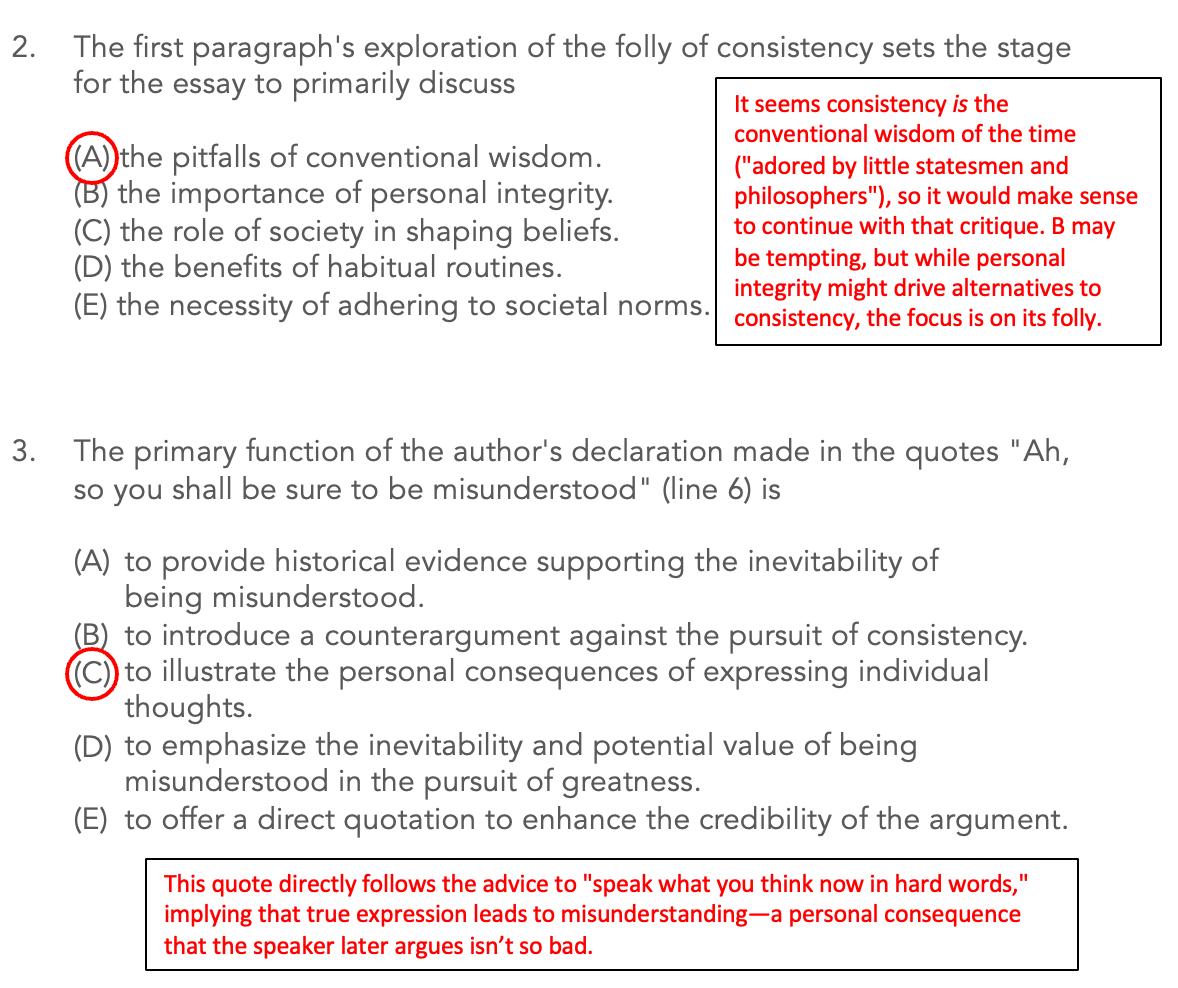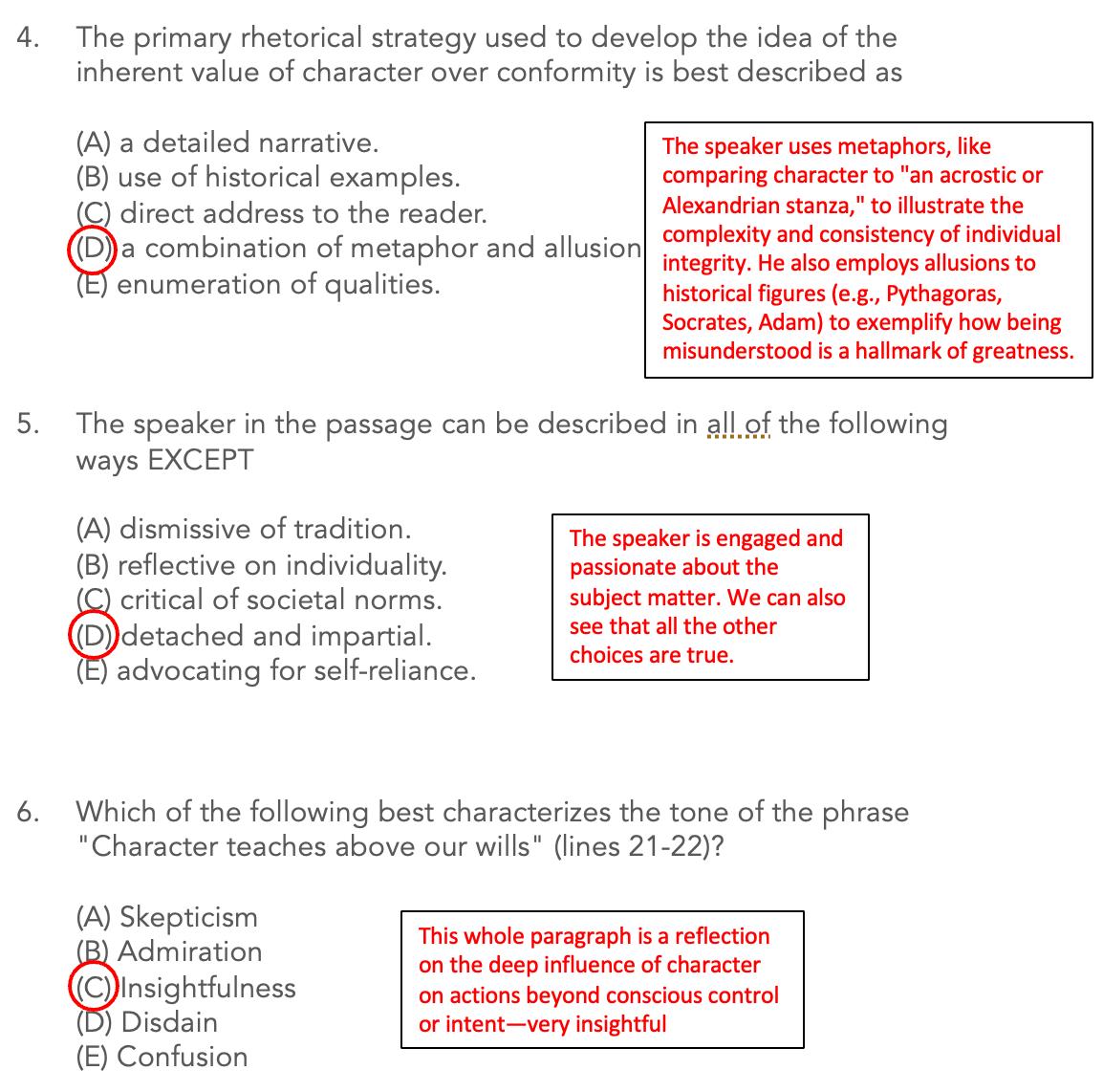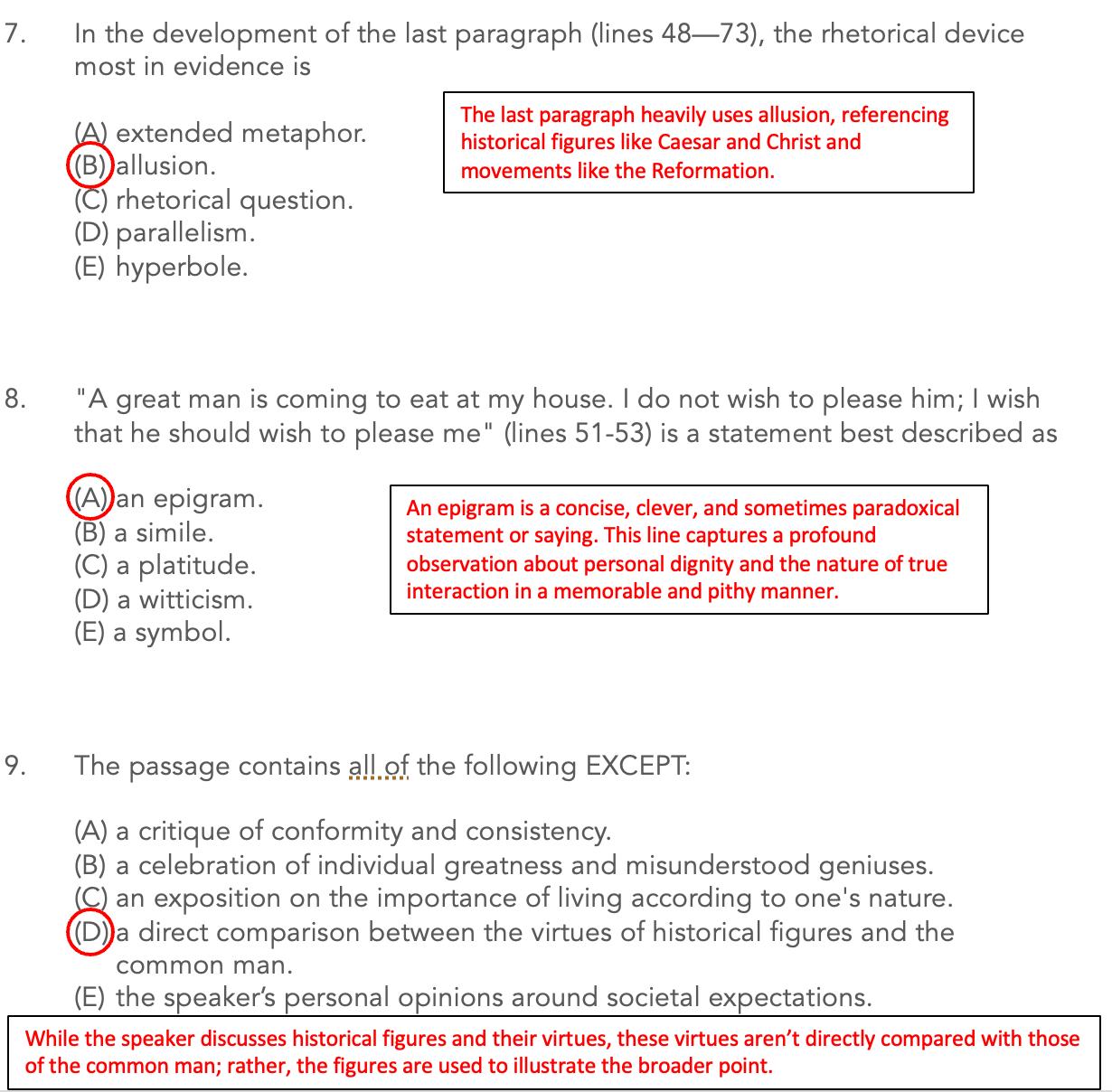AP LANGUAGE GUIDED PRACTICE

AP English Language and Composition
Questions 1-12. Carefully read the following passage and answer the accompanying questions.
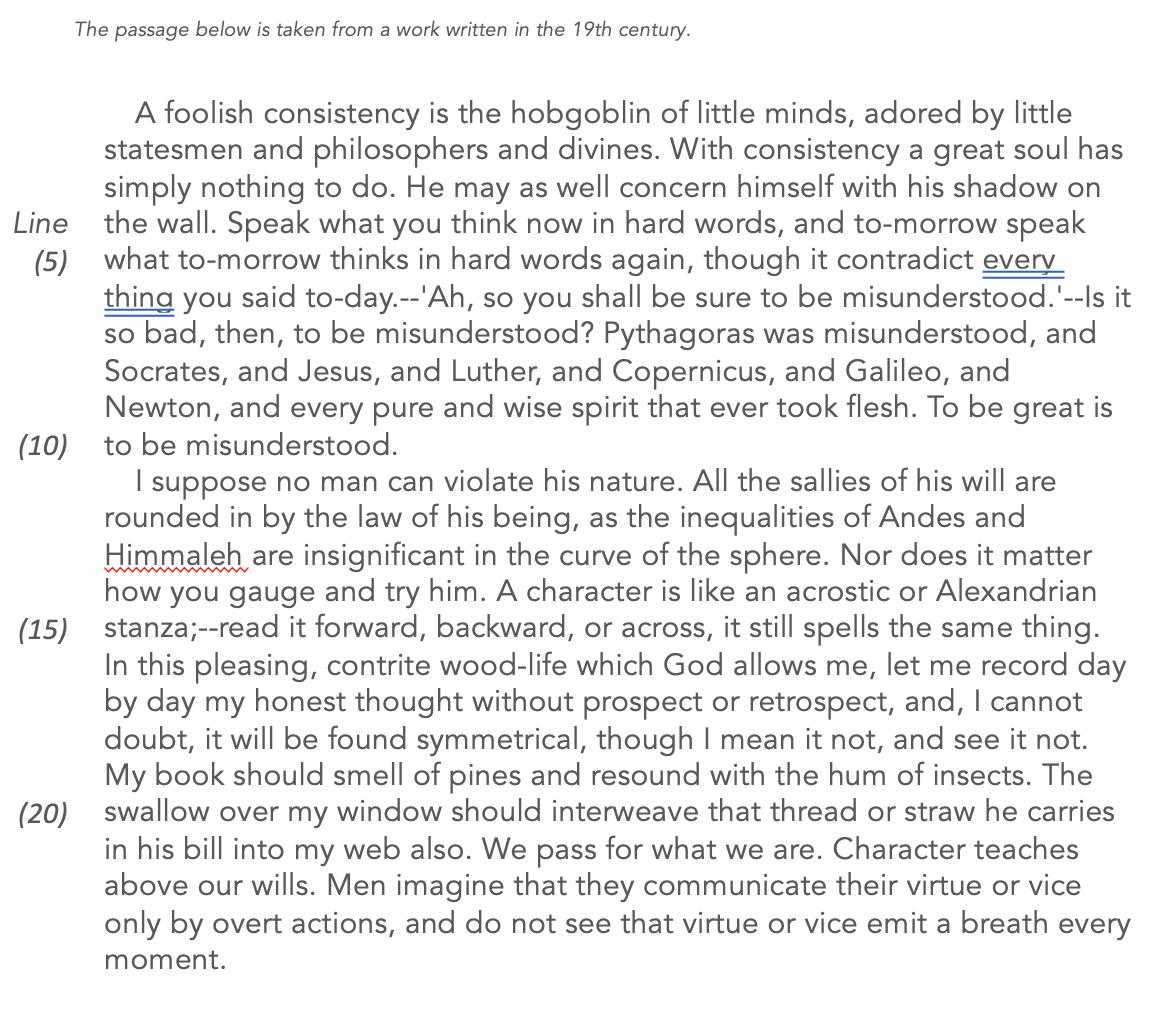
AP English Language and Composition
Questions 1-12. Carefully read the following passage and answer the accompanying questions.
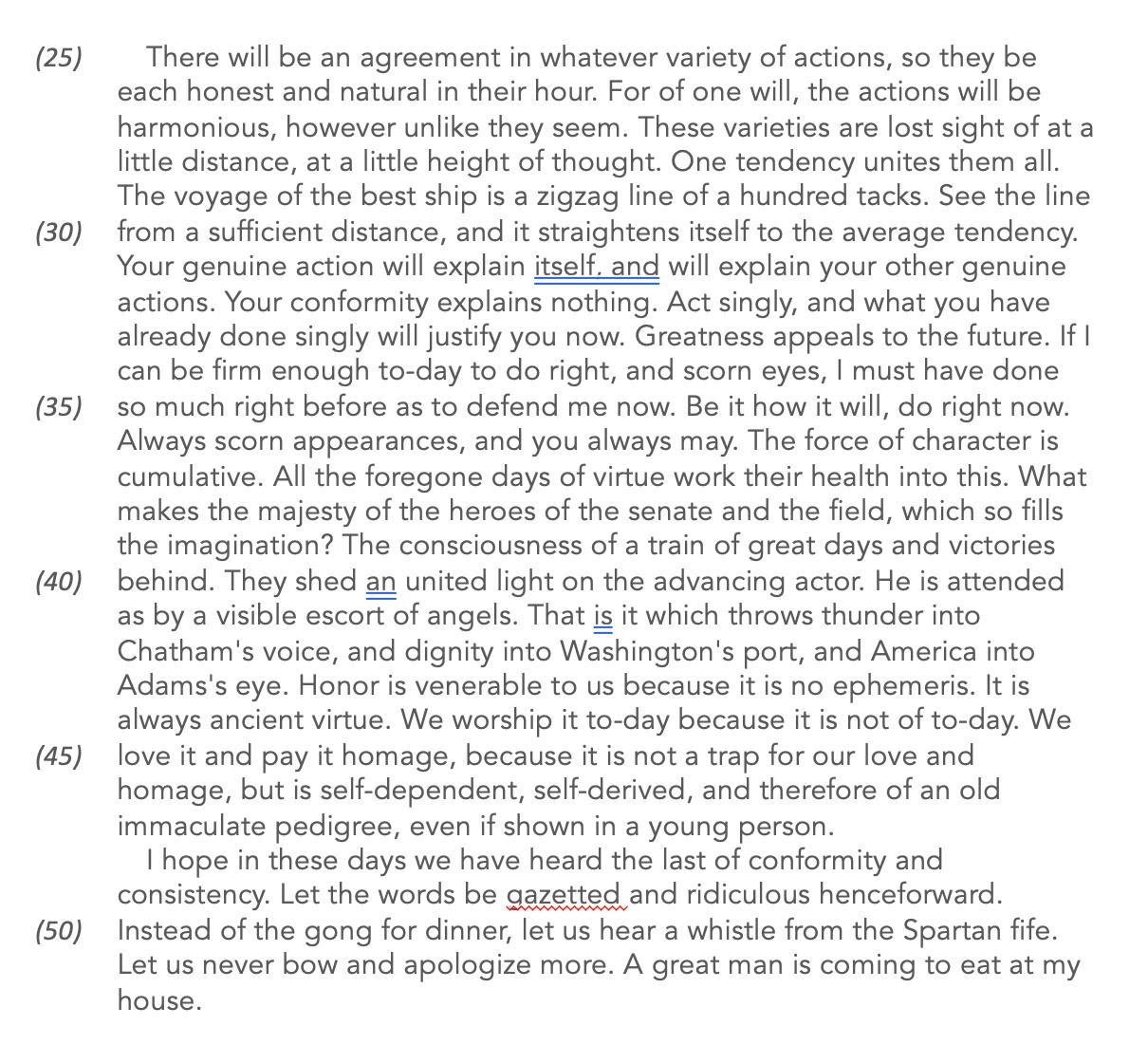
AP English Language and Composition
Questions 1-12. Carefully read the following passage and answer the accompanying questions.

TAKEAWAYS
1. Understand the Chronology of Questions: Questions on the AP Lang exam often follow the order of the text This organization can help you navigate through the questions more efficiently, using the text's progression to guide your understanding and responses
2. Never Leave Answers Blank: With no penalty for guessing, it's crucial to answer every question. Even a guess has a 20% chance of being correct, compared to the 0% chance of scoring points with a blank response.
3. Eliminate 4 wrong answers: Each multiple-choice question offers five answer choices. Your goal should be to logically eliminate four choices, improving your odds of selecting the correct one. Use reasoned elimination, not just gut feelings.
4. Annotation for Comprehension: As you read, make annotations focused on understanding the purpose, character functions, plot structure, narrator's role, overall message, shifts in tone or perspective, point of view, tone, mood, diction, syntax, and pacing These annotations will aid in overall comprehension and in answering questions more accurately
5. Anticipate Answers Before Scanning Options: Try to formulate an answer to questions based on your understanding of the text before reviewing the given choices This approach reduces the risk of being swayed by misleading options
6. Beware of Absolute Language in Choices: Answers containing words like "always," "never," or "only" are often incorrect. Absolute language can be a red flag indicating an overly broad or narrow choice.
7. Master Rhetorical Devices: Knowing your rhetorical devices is essential. It sharpens your analysis and essay writing, focusing on how authors use language to persuade. Understand strategies like ethos, pathos, logos, and metaphors to excel in the exam.






